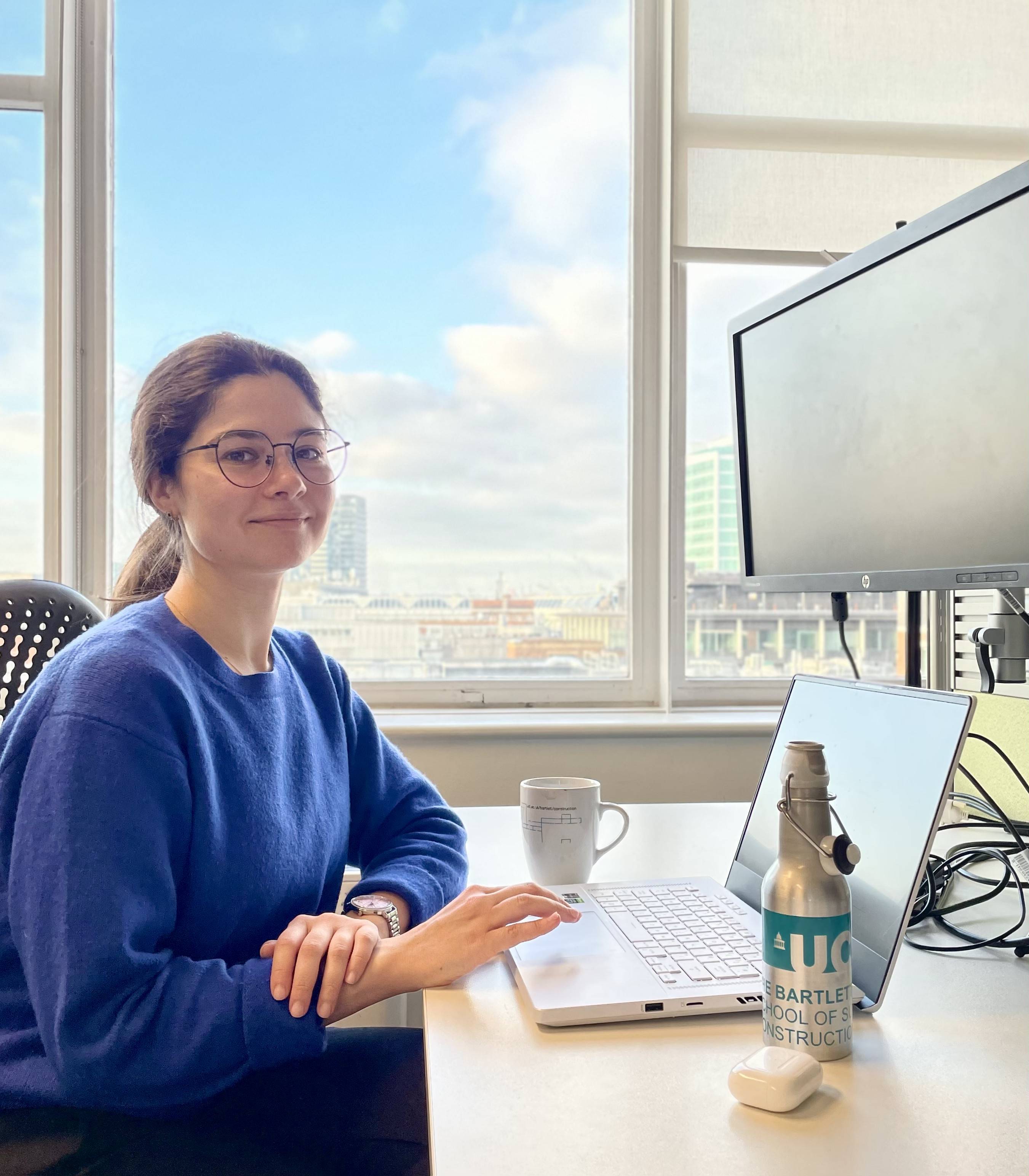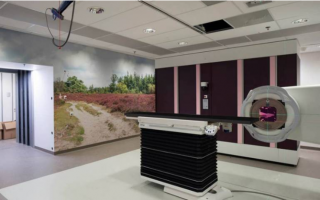MPhil/PhD student Daryia Palityka studying evidence-based design in medical facilities recently graduated from the MSc Healthcare Facilities and talks to us about the MSc programme.

Please tell us a little bit about your career/studies to date
I graduated from MSc Healthcare Facilities in September 2022 and have since continued my studies at BSSC as an MPhil/PhD student focusing on evidence-based design in medical facilities. Before moving to the UK, I studied medicine in Belarus, during which I began my research career while gaining clinical experience. During my time at medical school, I worked on three research projects encompassing paediatric surgery, ophthalmology, and public health. My research findings were presented at international conferences in Poland, Germany, and Ireland. Beside medical studies, I volunteered as a physician and surgical care practitioner in several clinical departments and undertook a nursing internship in a German clinic. After my graduation, I worked as a visiting researcher for one year at the University of Eastern Finland in the Biomedical Image Analysis group, where I contributed to developing machine learning tools for retinal disease diagnosis.
How did you come across MSc Healthcare Facilities and what inspired you to do the course?
My first degree in medicine has shaped my career and research objectives. During my volunteer in various clinical departments, I noticed that healthcare spaces has a significant impact on the health and welbeing of patients and professionals. After my internship in a German clinic, I was even more convinced of that fact and decided to develop myself in healthcare leadership to improve hospital environments. With my existing passion for architecture, I started to look for a field where I could apply my clinical and research skills while following my passion. That is when I discovered evidence-based design, a novel methodology in the intersection of medicine and architecture that applies science to design solutions to support patients and staff. I began my search for a course where I could gain all the essential knowledge in healthcare architecture. The MSc in Healthcare Facilities at UCL was a one-of-a-kind programme in that field across Europe.
What did you find beneficial during the programme?
During the Healthcare Facilities MSc, I gained valuable insight into the world of healthcare real estate, e.g., the critical stages of project delivery, governance, economics, finance, and the significant challenges faced by the industry. Given my clinical background, I delved in topics that allowed me to investigate how design characteristics, such as art, could facilitate better health outcomes.
Moreover, the course provided practical, illustrative examples from the real estate industry delivered by guest lecturers, including senior NHS professionals, leading architects, and experts from the government and finance sectors. A number of lecturers were from other countries, e.g. Australia, Sweden, Portugal, and Germany, who brought their international expertise to the class. Besides, studying alongside with fellow students from different cultural and professional backgrounds through class discussions, workshops, and teamwork helped me gain valuable skills for effective collaboration.
Would you recommend the course to others, can you tell us why?
The program is highly relevant to individuals aspiring to work both in academic or industry fields related to the healthcare build environment. Nowadays, healthcare facilities are under increasing pressure to provide equal access to medical care while keeping up with evolving scientific advancements and healthcare demands. The course equipped me with all the essential knowledge in the field, covering a wide range of topics in healthcare systems, the built environment, management, and governance. It delved into every-day challenges and addressed the issues we could encounter in the future. Healthcare Facilities MSc is a well-balanced program that combines a solid theoretical basis with practical applications.
What advice would you give to someone considering doing the course?
It would be very useful for each applicant to set a specific career goal, both geographically and professionally, and reflect on which skills and knowledge they would need from the programme to pursue that objective. This allows applicant to extract the most essential and practically applicable information from the modules’ sessions and assignments, facilitating insightful conversations within the class. Moreover, direct communication with guest speakers from the industry could open up potential career opportunities after graduating from the programme.
How has this course contributed to your current role/how does it link to what you would like to do in your future career?
Msc Healthcare Facilities provided me with comprehensive knowledge in the field which I needed for my career in evidence-based design. My next step after graduation was to perform research and contribute to the existing field knowledge. In my master’s dissertation, I explored how to increase the accessibility of arts in healthcare built environment for people with visual impairments. I was able to evaluate the state of healthcare arts programmes in several London NHS Trusts and assess the state of national guidelines. Throughout this process, I received excellent supervisory support from the programme leader, Dr. Evangelia Chrysikou, who generously shared her expertise and valuable connections. This experience motivated me to continue to pursue my research career in the UK as a PhD student at BSSC. Furthermore, communication opportunities with people both from industry and academia through lectures and networking events as well as connections with classmates from different parts of the world helped me enrich my professional network in the healthcare-built environment worldwide, which will further contribute to my career goals.
 Close
Close



